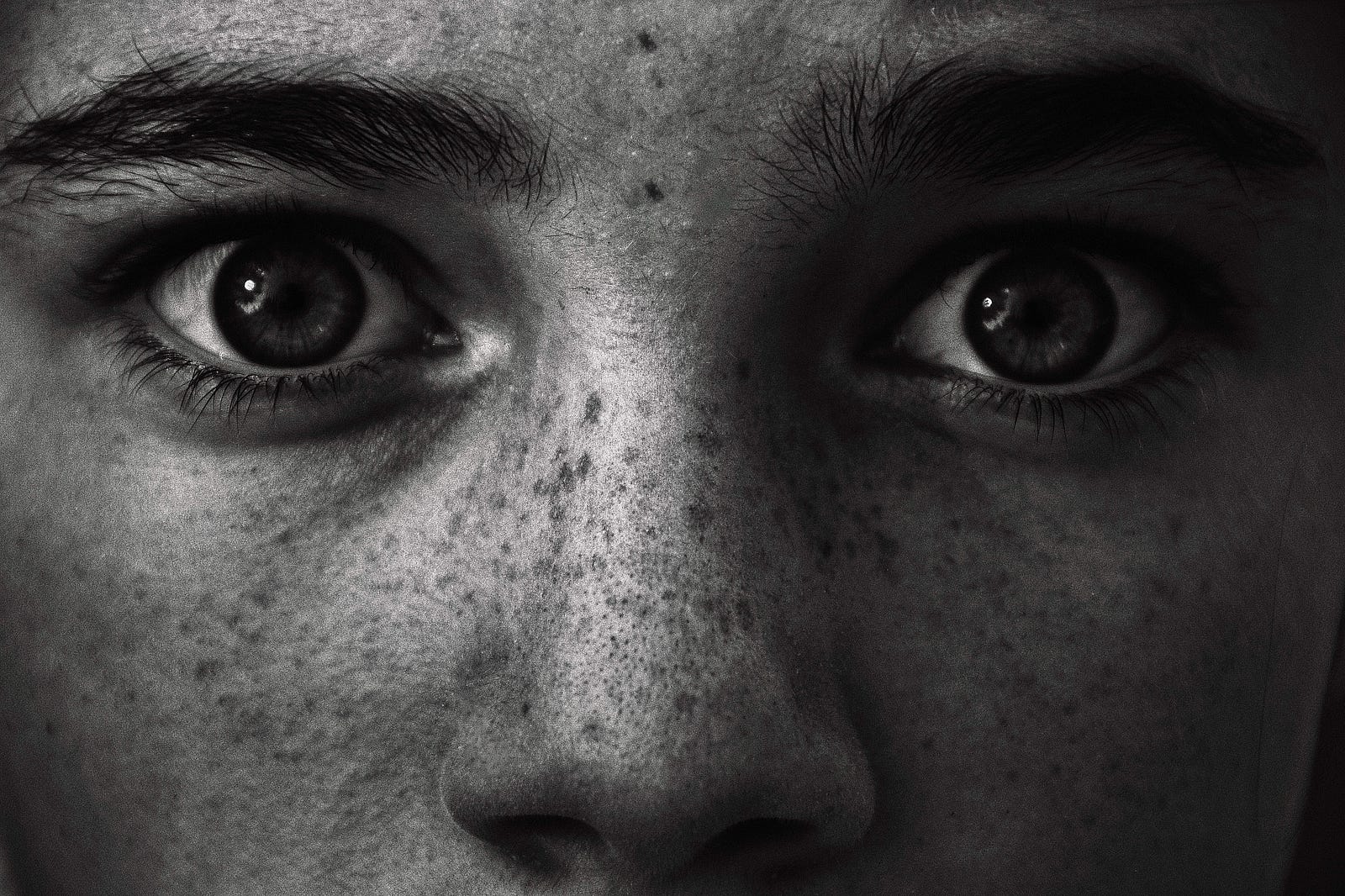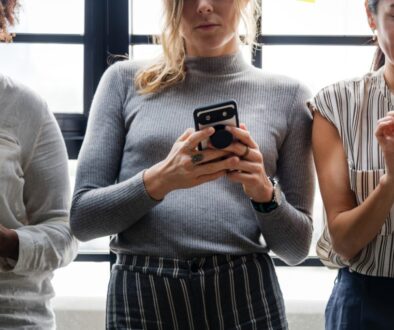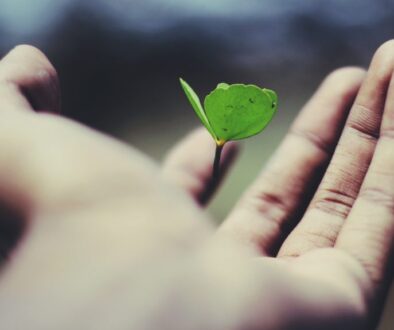Dopamine detox is a lie
A story about how you lost your drive and how to get it back.

As always, if you prefer watching this as a video, it’s linked at the bottom of the page.
Is your life good enough to be as passive as you are?
Or is it too comfortable? Crawling from one distraction to the next, lulled by one dopamine hit (we get back to that later) after another. Like proper addicts, we watch a story here and a YouTube video there. Then one coffee, and another one. Music on demand, and to round up the day, three episodes of a series so well-produced that it can actually keep our demolished attention span on track for hours.
It’s fucking cozy, isn’t it? Our lives burst of opportunities for, what I call, effortless rewards. They are available for everyone. No need to be rich to afford caffeine and a Netflix subscription. Even if that twenty bucks a month are too much, there is still a free endless content stream from news and social media. If you follow YouTube trends, you might get the impression that social media and friends trigger dopamine hits, and that you need fast for a little while to increase reward sensitivity. But that won’t turn your life around.
Biology is never that simple, and dopamine is more than a reward-indicating hormone. Recent research indicates a major role in driving the search for rewards. It makes you want to do things in order to get rewards. In the sense of causing a strong innate desire for creation and exerting effort. The restless excitement to get going you felt the last time you were bored. Probably years ago. In your childhood.
In the absence of reward, the drive to seek it, strengthens.
Living among easy pleasures (for years) has consequences. It‘s no surprise that the people that spend the most time in reward-rich environments discover a sense of purposelessness. Burned-out SoMe managers and once highly productive YouTubers all fall into a creative hole over the course of time. A decline in desire and drive seems industry standard.
Our unlimited access to immediate, effortless rewards prevents dopamine from taking charge to make us do things to feel good. There is no need for desire if pleasure comes easy. Why go to the gym if you can watch fitness content on TikTok to feel nearly as good?
Effortless pleasures are probably the reason why a whole generation chooses Netflix and chill (literally, not the euphemism) over creation and effort.
We lost our drive, and that’s exactly what makes us feel uneasy, in lack of control.
There is no short-term fix, you lazy ass.

One adverse effect of our consumption community is that dopamine detox videos pop up like dandelions in spring to capitalize on a public issue without delivering a solution. These videos at least confirm that there is an issue of broad concern.
The problem is that fighting symptoms with short-term solutions will be as successful as soup diets.
It’s not even the right wording as there is no actual detoxification. Getting getting rid of dopamine means depression. Instead we want to make it work by avoiding external, easy-to-get rewards and re-establish that everything worthwhile demands drive and time.
The temporary effort is a good initiative but once effortless rewards are available again, despair returns. We need to fix it for good.
Leaving it all behind

This is a hypothesis, but I assume that the subconscious desperation, and feeling lost, drives our brains to glorify rural, simple living (or even any escape-associated life) with clearly defined tasks to re-establish a healthy relationship between drive and reward.
The desire to move to the woods might be as well a desire to bring balance to our reward systems.
Welcome van life, the cabin in the wood, and a farm in the countryside. If the popularity of simple living did not rise with SoMe itself (The graph starts from the release of Instagram in 2010), then it at least spiked during the pandemic with all its frustration and financial pressures added to an imbalanced reward system.

As much as I like the idea of all of us moving back to a cabin or farm in tune with the environment, it would bare existential complications in our societies. Urbanization took place for valid reasons.
Fleeing to the woods might still be valid for people that feel lost in bigger cities with a strong desire for physical work and nature (like me) but that way of life comes with other struggles. Struggles that won’t be much less drastic than what we deal with right now.
Especially in the the financially deprived countryside, it is easy to fall back on SoMe as a means of income. Once that happens, you’re back at ground zero. But with a calmer environment.
There has to be a fundamental change rather than short-term “detox” or escaping modern life altogether.
The harsh truth
This is a concept for now. I won’t claim to have figured out life. That’s for the more pretentious YouTubers. But let’s have a look at a strategy that seems to work continuously by altering the source of misery.
How would you think your life would feel if you remove all effortless rewards? Stripping it naked from artificial happiness, naked from all pleasure you have not earned. Or at least make it scarce and valuable.
I assume the life you call acceptable right would not feel this way any longer. Once you can’t numb the worries with pleasures, you are forced to act. Dream ends and true feelings will come to the surface.
You might discover that you are financially unsatisfied (something simple living tries to cover up). Maybe you realize that your job is only bearable with intermediate effortless rewards (SoMe and coffee) and it’s time to quit or even leave the country for a different life. But let’s not forget the bright side. It could very well be, that without all FOMO and impression, you actually start to appreciate how things are and unveil happiness you could not find in the blur of the past.
All I’m saying is that we can’t judge life satisfaction while being high on the pleasures of effortless rewards.
As long as you don’t know where you want to go in a sober state of mind, you will feel like something is missing.
Actional advice
If someone tells you that they have figured out life, they are probably lying (either to you or themselves). I’m even having doubts that greek philosophers walked the walk all the time.
Having a two-week detox is like having a break from drug abuse and jumping right back into the environment that made you feel bad in the first place. Brilliant! But there is something to the approach. It has been there for ages.
Seeking enlightenment as a monk is pretty similar. The “Dopamine detox”, for good and commit to a life without desires and with loads of physical work. No social media, porn, or pleasure substances. If nothing comes easy things start to make sense. We keep it a little less drastic and more practical.
Perfection is an illusion, but being content with one’s way through life is achievable. The following is the best possible method I came up with the get sober from effortless rewards.
Monk Mode (light)
I said actionable, right? That means it has to be feasible as well. And we can’t all be monks or the like.
But we can get as close as possible, removing one effortless pleasure after another.
We are all different! Less addictive personalities or not, with different upbringing and struggles. So I won’t even pretend to tell you exactly how to change your behavior, but we can set the goals together.
Effortless rewards 1: Substance abuse
Let’s take hard drugs and steroids out of the equation and assume they are all detrimental in the long run.
But then there is the sneaky stuff. Caffeine. Nicotine. Sugar. Widely accepted and the biggest enemy in feeling what you truly feel. After years of battling caffeine usage and its proponents in research, I personally concluded *opinion* that no beverage that’s altering your mood and bowel movements should be consumed regularly.
How you get rid of them is up to you. It’s hard. If willpower isn’t enough (which it rarely is), maybe contact an expert in drug cessation. But even they have a hard time identifying successful methods.
What helped me with the caffeine was dissatisfaction with my life and mental state as well as physically getting rid of it. Gone for good.
Effortless rewards 2: Digital distractions
Controlling the giant ain’t easy. I don’t think willpower is doing anything at all. So I found a way to make it a one-time decision without a way back.
It’s been a few years of trying to block myself from apps and web pages until I came across freedom.to a service that offers an application for both mac/pc and iPhone/android.
It worked wonders on the mac. But the iOS ecosystem was not providing enough access for the app to run without backdoors of turning it off altogether. By turning off the VPN client, the application was useless.
So there were two options for me to get my phone usage under control. Either getting rid of the smartphone altogether. Or getting an android phone that could be restricted with no way around it.
I have an android phone now. And freedom finally does the job.
Here is the exact method I use, to restrict SoMe and time wasters for good.
Blocklist 1 — Phone:
SoMe (Instagram, Twitter, Facebook, YouTube, Reddit, TikTok) and news are blocked for good by having them restricted from 8:00 pm to 7:45 pm, that way you have an emergency window to access them. It is set to our dinner time so most days it passes without notice.
Apart from the web domains you also have to block the individual apps.
Blocking the news section does work with accessing the actual news pages but still allowed you to see the headlines in the google news pages (browser). It may sound weird, but even with this, you can keep your brain occupied.
So the browser got blocked as well, same time schedule.
Now there is the issue that you could uninstall the freedom app via settings (despite admin control). The only way to prevent that is by adding the settings app to the blocklist (only available on android).
But we are done! The phone is set up. Your android phone transformed into a SoMe-free device while still being a pretty smart phone.
Blocklist 2— Mac/Pc:
We go a bit easier on the mac! SoMe have its value and place. That shall be respected.
Depending on your demands this may change. But I blocked SoMe and news (excl. YouTube) from 8:00 pm to 7:45, and YouTube from 8:00 pm to 5:00 pm.
In that way, there is still time for uploads if necessary.
On Sundays, all SoMe are unblocked from 2:00 pm to 8:00 to upload and share the week’s work.
Effortless rewards 3: (Music & Entertainment)
I’m not sure about the individual issues here, but blocking streaming services (series) and music platforms can receive the same treatment via the freedom app as long as it runs on your mac/pc or phone.
For me, these two have never been as problematic. I keep music available for workouts to reinforce the positive association the physical activity. Once scarce, music hits differently!
A decision for a better life
One might argue that this is removing all joy from life. But I would strongly argue against it. A finished project is more valuable than a coffee. Meeting a friend trumps seeing their life on a screen. And remove effortless pleasure creates hours (one average of 4/day) for sports, adventure, and true leisure that were once spent sedentary in the dim light of your devices.
This will in the long run reestablish work ethic and drive. Fueled by Dopamine.
It may well be that was all you were missing.


